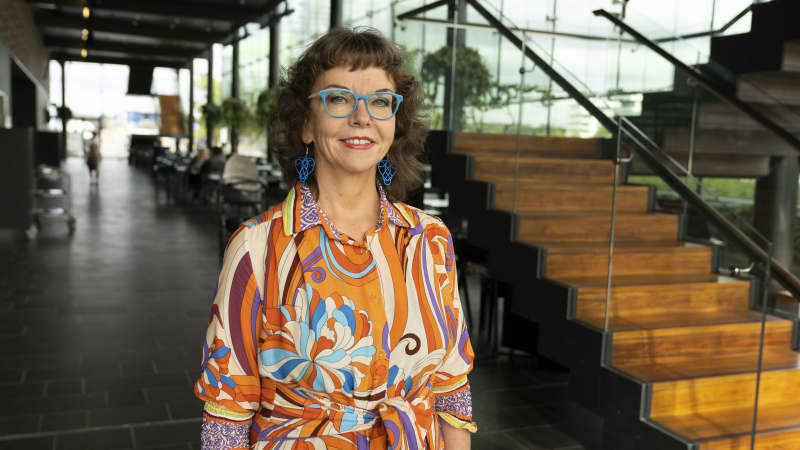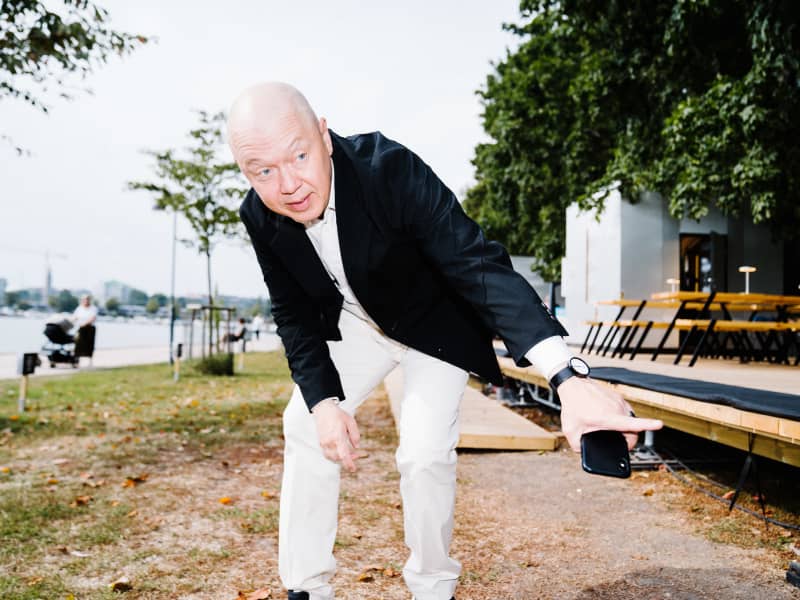Concert audiences learned during the pandemic to leave ticket purchases until the last minute. The phenomenon can be seen both at classical music festivals and in the season ticket sales of symphony orchestras.
Organizing classical music events has turned into a chore during the corona pandemic. Or at least, after the corona restrictions are lifted, there is a constant uncertainty about whether the audience will find a place for the concerts.
If found, tickets are bought at the last minute. For the organizers, it means that it is almost impossible to predict the audience numbers of future events.
Many classical music festivals have fallen short of their audience goals during the summer. Fewer listeners arrived than expected, for example, at the concerts of the Mejmu festival and the early music festival Sastamala Gregoriana. The Turku Music Festival prepared for bumpy sales by reducing the offer at this summer’s festival in advance, and that is partly why the number of visitors was about half of normal.
The same phenomenon, which has been proven at smaller festivals, seems to be repeated at the Helsinki Festival Weeks. Today, Wednesday, the concert for peace at the Musiikkitalo is the only classical music event of the largest multi-arts festival in the Nordic countries that is sold out in advance. On the other hand, for example, according to the venue map, there are still a huge number of tickets left for next Saturday’s concert by the internationally renowned Mahler Chamber Orchestra.
Juhlaiikot does not share sales figures for individual events, but according to the festival, in some cases up to 15 percent of tickets have been sold at the door.
– In terms of predictability, there were better years in between. We got used to knowing how many people are coming to concerts.
Orchestras lost up to a third of their season ticket holders during the pandemic
A concert tour for Finland’s largest symphony orchestras reveals that the change in concert audience behavior is also reflected in their statistics. Season ticket sales have dropped considerably since before the corona pandemic.
Season tickets for the Turku Philharmonic Orchestra have so far been sold for a good 60 percent of what was sold for the fall season 2019. In Turku, however, the sale of season tickets is still in progress – they will be sold until Friday of this week. A similar situation, 60 percent sales compared to the time before the pandemic, is in Oulu, where season tickets are sold until September 5.
In Helsinki and Tampere we have reached slightly better figures. Helsinki City Orchestra’s season ticket sales this fall are 73 percent compared to fall 2019, Tampere Philharmonic’s around 80 percent. Of the five orchestras in the playing tour, the Radio Symphony Orchestra has the best number of regulars, which has managed to sell 84 percent of season tickets for this fall compared to the time before the pandemic.
In addition to festivals, the administration of symphony orchestras also believes that statistics can be explained by a change in purchasing behavior. During the pandemic, the public learned that nothing is certain – at least whether the distant future concert will be organized at all, and whether the buyer will be healthy on the day of the concert.
For example, the Helsinki City Orchestra lowered its occupancy rate target to 70 percent last spring and exceeded the target despite the messed up concert calendar due to corona restrictions. Before the pandemic, HKO’s occupancy rate hovered around 90 percent on both sides. The occupancy rate is a ratio describing the filling of the audience seats in the concert hall.
Advocacy for orchestras: \”The time has come\”
– As for season ticket sales, maybe you can see a bit of a trend. People buy tickets quite late and also think about season tickets, what if something happens, the concert is canceled or I get sick. I could see that, however, we have come pretty close to the sales level that existed before the pandemic.
There doesn’t seem to be much concern, because the public buys their tickets at the last minute. At least that’s what we want to believe.
– I wouldn’t talk about audience loss, I wouldn’t talk about audience flight, but everyone has a new situation, and I believe that the situation will stabilize in this so-called new normal. Now you just have to be patient, attract the public and connect with old customers in a different way, Lehtonen states.

You have to come up with new ways to sell to a spontaneous audience
Marko Ahtisaari, the artistic director of the Helsinki Festival Weeks, is an optimist amidst the challenges. While predictability has taken a hit, people may learn to make quick decisions, to live in the moment.
– The positive side is that people are on the move. I encourage Finns that maybe we could be a little more continental European in this respect – without stereotypes. You can also go to a concert this evening.
In a certain way, the phenomenon is a return to the old days, Ahtisaari points out. Before that, tickets were mostly sold at the door, and accurate sales forecasts are just the sidelines of the digital age.
Whereas a possible loss of box office revenue is a blow to the finances of festivals and symphony orchestras, their importance in maintaining cultural life remains unchanged, Ahtisaari reminds.
– The role of the festival weeks has always been such that we bring out artists who are perhaps not so well known in Finland.
Ahtisaari takes an example from decades ago, when a group that has since shaken up the rock world was a guest of the Juhlaviikkikot.
– Radiohead played here in -95, before _OK Computer_, so the band was not known yet. I often hear that half of Helsinki was at that gig, but I know from the statistics that it wasn’t.
– But it is absolutely true that when we move to a world where spontaneous decisions are made, we have to think about how concerts are marketed and sold.
_What thoughts did the story evoke? You can discuss the topic on 1.9. until 11 p.m._

